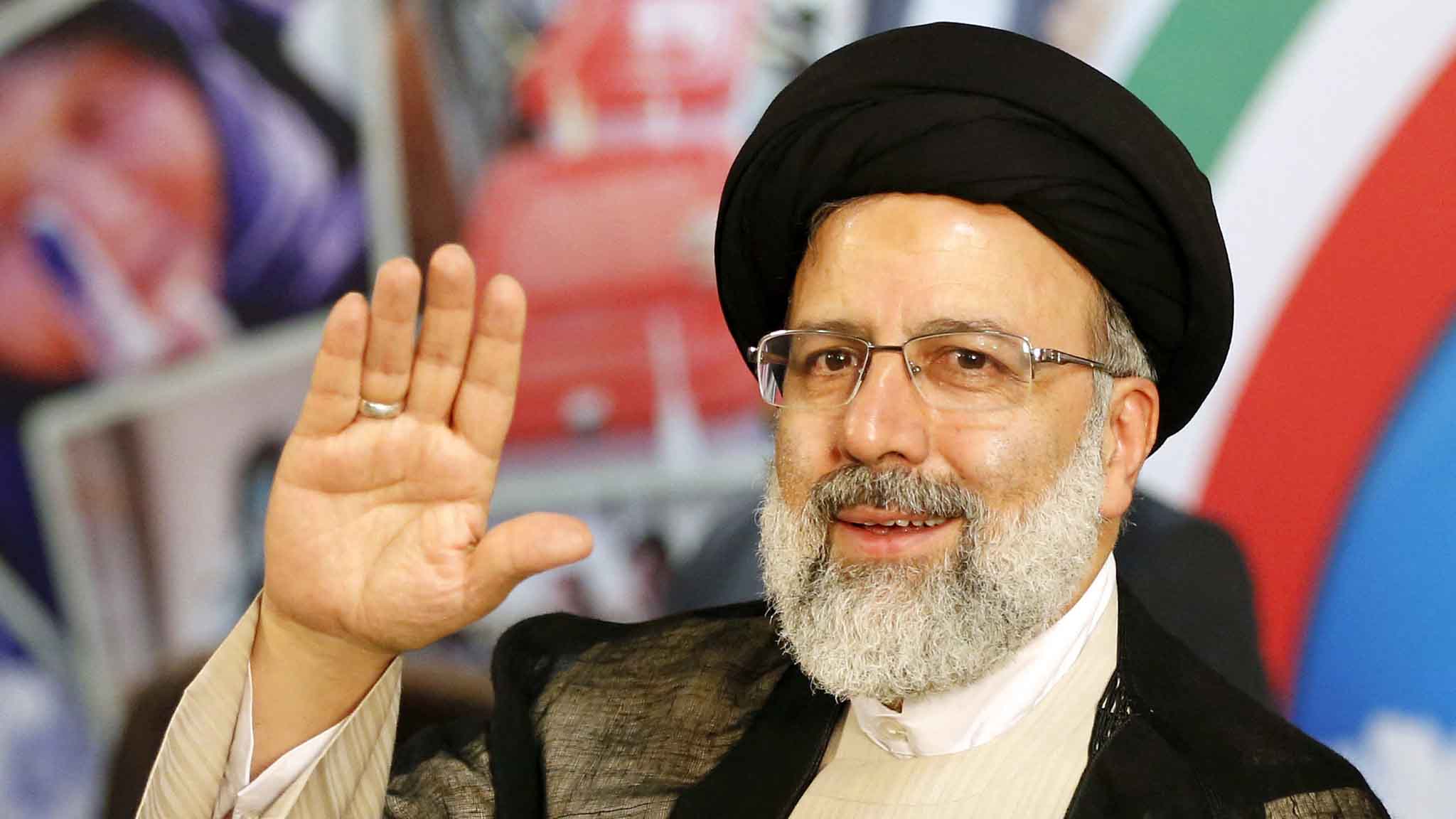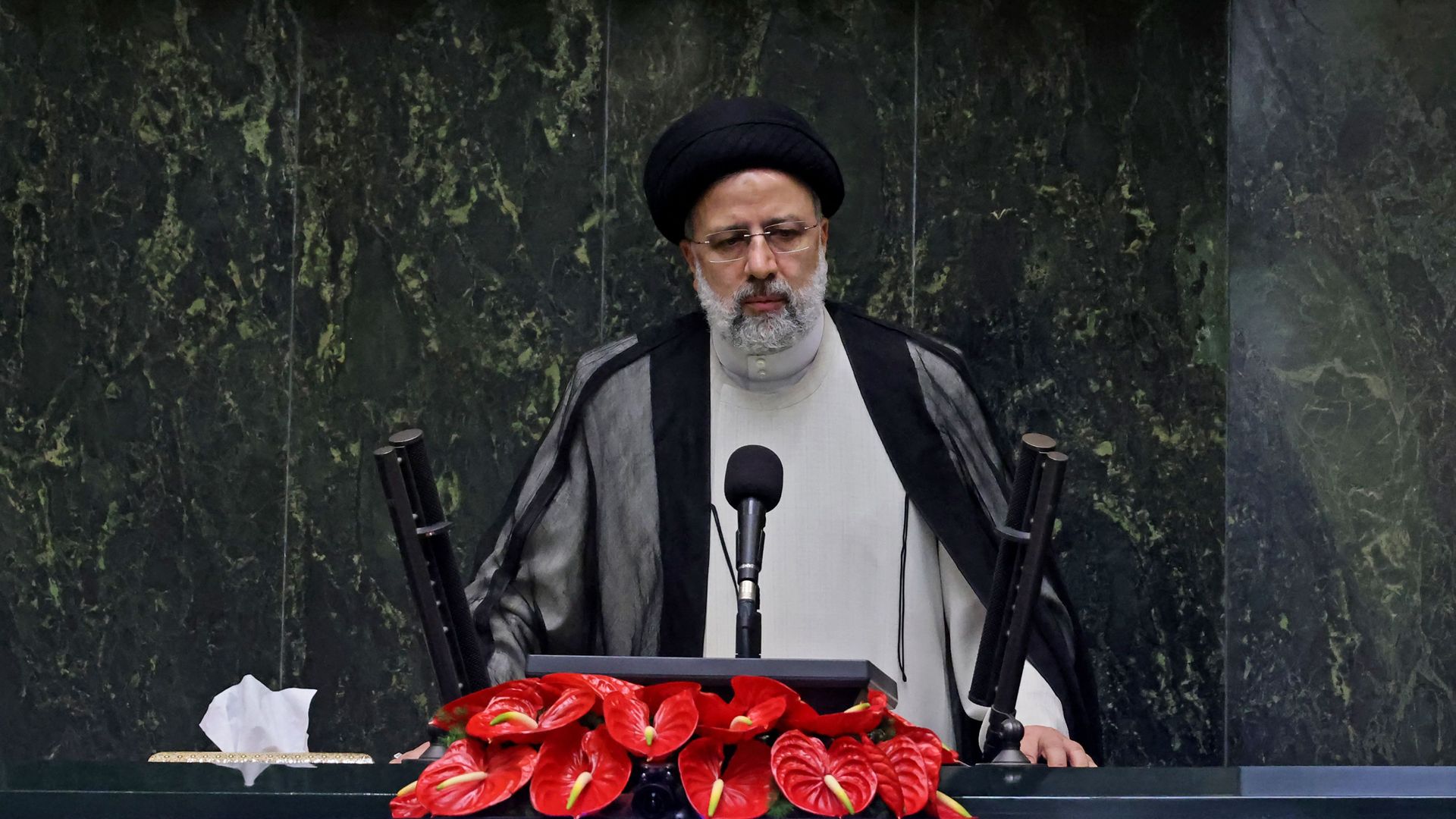Ebrahim Raisi: Iran's Late President And His Unforeseen Demise
Table of Contents
- The Sudden Demise of a President
- Ebrahim Raisi: A Biographical Sketch
- The Rise of a Principlist Jurist
- A Controversial Presidency and Crackdowns
- The Succession Question: A Top Contender's Fall
- The Helicopter Crash and Its Aftermath
- Iran at a Precarious Moment
- Looking Ahead: Iran's Political Future
The Sudden Demise of a President
The news broke on Sunday, May 19, 2024, that a helicopter carrying Iran’s president, Ebrahim Raisi, and Foreign Minister Hossein Amir-Abdollahian had crashed in a remote, mountainous area in northwest Iran. The initial reports were grim, speaking of a "hard landing" and difficult search and rescue operations hampered by dense fog and treacherous terrain. As hours turned into a full day, hope dwindled. Ultimately, Iranian state news channels, including IRINN and Semi, confirmed the devastating outcome: "no survivors" were found at the crash site. Iranian President Ebrahim Raisi was dead at 63, alongside his foreign minister and other officials. The incident occurred as Raisi and his delegation were returning from a ceremony to inaugurate the Qiz Qalasi Dam, a joint project with Azerbaijan, which he had visited with Azerbaijan’s President Ilham Aliyev. The sudden death of a leader will shake any country, but the crash that killed President Ebrahim Raisi came at a particularly precarious moment for Iran and the Middle East as a whole. Iran’s chief of staff of the armed forces, Mohammad Bagheri, swiftly ordered an investigation into the cause of the helicopter crash, underscoring the gravity and sensitivity of the situation. This unforeseen event immediately cast a shadow of uncertainty over the Islamic Republic’s hardline establishment, prompting questions about its stability and future trajectory.Ebrahim Raisi: A Biographical Sketch
Ebrahim Raisi was born on December 14, 1960, in the shrine city of Mashhad, Iran. His background was deeply rooted in the religious establishment, reflecting the core identity of the Islamic Republic. He was a Twelver Shia Muslim jurist, a religious scholar who adhered to the dominant branch of Shi'ism in Iran. Both his parents claimed direct descent from the Prophet Mohammad, bestowing upon him the honorific "Sayyid," a title that carries significant respect and social standing within Shia Islam. This lineage undoubtedly played a role in his early life and eventual career path. Tragedy struck Raisi at a young age; his father died when he was just five years old. Despite this early loss, his mother is still alive, a testament to his enduring personal connections amidst a life of public service. Raisi’s early education was focused on religious studies, a common path for those destined for a career in the judiciary or clerical establishment in Iran. He attended the seminary in Qom, a spiritual center for Shia Islam, where he studied under prominent religious scholars. This formative period laid the groundwork for his future roles within Iran's unique system of clerical rule. His deep religious grounding and lineage positioned him as a natural fit for the principlist group, a conservative faction within Iranian politics that emphasizes adherence to the foundational principles of the Islamic Revolution.Personal Data and Biodata
| Attribute | DetailThe sudden death of Ebrahim Raisi, president of Iran, sent shockwaves through the Islamic Republic and the broader Middle East. His passing on May 19, 2024, in a helicopter crash, not only ended the tenure of an ultraconservative leader but also dramatically altered the political landscape of a nation already navigating complex internal and external pressures. Raisi, a figure deeply entrenched in Iran's establishment, was more than just a president; he was widely considered a top contender to succeed the nation’s supreme leader, Ayatollah Ali Khamenei, making his demise a pivotal moment in Iranian history.
This article delves into the life, political career, and the profound implications of the death of Ebrahim Raisi, exploring his background as a Twelver Shia Muslim jurist, his controversial legacy, and the uncertain future now facing Iran's hardline establishment. From his early life in Mashhad to his ascent to the highest office, and finally, the circumstances surrounding the helicopter crash, we aim to provide a comprehensive understanding of a leader whose influence extended far beyond his presidential mandate.
Table of Contents
- The Sudden Demise of a President
- Ebrahim Raisi: A Biographical Sketch
- The Rise of a Principlist Jurist
- A Controversial Presidency and Crackdowns
- The Succession Question: A Top Contender's Fall
- The Helicopter Crash and Its Aftermath
- Iran at a Precarious Moment
- Looking Ahead: Iran's Political Future
The Sudden Demise of a President
The news broke on Sunday, May 19, 2024, that a helicopter carrying Iran’s president, Ebrahim Raisi, and Foreign Minister Hossein Amir-Abdollahian had crashed in a remote, mountainous area in northwest Iran. The initial reports were grim, speaking of a "hard landing" and difficult search and rescue operations hampered by dense fog and treacherous terrain. As hours turned into a full day, hope dwindled. Ultimately, Iranian state news channels, including IRINN and Semi, confirmed the devastating outcome: "no survivors" were found at the crash site. Iranian President Ebrahim Raisi was dead at 63, alongside his foreign minister and other officials. The incident occurred as Raisi and his delegation were returning from a ceremony to inaugurate the Qiz Qalasi Dam, a joint project with Azerbaijan, which he had visited with Azerbaijan’s President Ilham Aliyev. The sudden death of a leader will shake any country, but the crash that killed President Ebrahim Raisi came at a particularly precarious moment for Iran and the Middle East as a whole. Iran’s chief of staff of the armed forces, Mohammad Bagheri, swiftly ordered an investigation into the cause of the helicopter crash, underscoring the gravity and sensitivity of the situation. This unforeseen event immediately cast a shadow of uncertainty over the Islamic Republic’s hardline establishment, prompting questions about its stability and future trajectory.Ebrahim Raisi: A Biographical Sketch
Ebrahim Raisi was born on December 14, 1960, in the shrine city of Mashhad, Iran. His background was deeply rooted in the religious establishment, reflecting the core identity of the Islamic Republic. He was a Twelver Shia Muslim jurist, a religious scholar who adhered to the dominant branch of Shi'ism in Iran. Both his parents claimed direct descent from the Prophet Mohammad, bestowing upon him the honorific "Sayyid," a title that carries significant respect and social standing within Shia Islam. This lineage undoubtedly played a role in his early life and eventual career path. Tragedy struck Raisi at a young age; his father died when he was just five years old. Despite this early loss, his mother is still alive, a testament to his enduring personal connections amidst a life of public service. Raisi’s early education was focused on religious studies, a common path for those destined for a career in the judiciary or clerical establishment in Iran. He attended the seminary in Qom, a spiritual center for Shia Islam, where he studied under prominent religious scholars. This formative period laid the groundwork for his future roles within Iran's unique system of clerical rule. His deep religious grounding and lineage positioned him as a natural fit for the principlist group, a conservative faction within Iranian politics that emphasizes adherence to the foundational principles of the Islamic Revolution.Personal Data and Biodata
| Attribute | Detail |
|---|---|
| Full Name | Sayyid Ebrahim Raisolsadati (commonly known as Ebrahim Raisi) |
| Date of Birth | December 14, 1960 |
| Place of Birth | Mashhad, Iran |
| Date of Death | May 19, 2024 |
| Age at Death | 63 |
| Religion | Twelver Shia Islam |
| Political Affiliation | Principlist Group (conservative) |
| Parents | Both claimed direct descent from the Prophet Mohammad |
| Father's Status | Deceased (died when Raisi was five) |
| Mother's Status | Still alive (as of his death) |
| Spouse | Jamileh Alamolhoda |
| Children | Two daughters |
| Key Roles Held | Prosecutor, Attorney General, Chief Justice, President of Iran |
The Rise of a Principlist Jurist
Ebrahim Raisi's career trajectory was almost exclusively within Iran's judicial system, a path that reflects the Islamic Republic's unique governance structure where religious scholars often hold significant legal and political power. He began his judicial career shortly after the 1979 Islamic Revolution, quickly ascending through the ranks. His early roles included serving as a prosecutor in various cities, demonstrating his commitment to upholding the revolutionary ideals and legal framework. His rise was marked by appointments to increasingly powerful positions. He served as the prosecutor of Karaj and Hamadan, then as the deputy prosecutor of Tehran in the 1980s. During this tumultuous period, particularly in 1988, Raisi's name became linked to extrajudicial killings of political prisoners, an accusation that would haunt his public image throughout his career. While he consistently denied direct involvement or responsibility for the extent of the atrocities, human rights organizations and international bodies have cited his role in these events as a significant stain on his record. Raisi continued his ascent, becoming Tehran's prosecutor general in 1989, a position he held for five years. He then moved to the National Inspection Organization, eventually becoming its head. In 2004, he was appointed First Deputy Chief Justice of Iran, a powerful position that placed him at the heart of the country's judiciary. His dedication to the principlist ideology and his perceived loyalty to the Supreme Leader, Ayatollah Ali Khamenei, were key factors in his continued promotion. In 2014, he became Iran's Attorney General, and in 2016, he was appointed Custodian of Astan Quds Razavi, a powerful and wealthy charitable foundation that manages the Imam Reza shrine in Mashhad. This role not only provided him with significant economic influence but also elevated his public profile, positioning him as a figure with both religious and administrative authority. His journey culminated in his election as president of Iran in 2021. His victory was largely facilitated by the disqualification of many reformist and moderate candidates, effectively clearing the path for a hardline victory. As a conservative Shiite Muslim cleric who had a long history in the judiciary, Raisi checked all the boxes for the establishment, particularly for those who sought a firm hand in governing and a continuation of the revolutionary principles. His election signaled a clear shift towards a more ultraconservative stance in Iranian politics, reflecting the Supreme Leader's desire for a unified, hardline front.A Controversial Presidency and Crackdowns
- Aishah Sofey Leaks
- Jenna Ortega Leaked
- Chance Brown Net Worth
- Noarmsgirl Only Fans
- How Tall Is Al Pacino In Feet

Ebrahim Raisi | Biography, Death, President, & Iran | Britannica

Ebrahim Raisi elected Iran's president with about 62% of vote - CGTN

Hardliner Ebrahim Raisi sworn in as Iran's new president